
Lenders may be excused from feeling particularly stressed right now. In typical times they have often had to make difficult decisions but now they must also factor in an uncertain economy that is being driven by the virus.
The men and women on the following pages—our choices for this year's lender influencers—were selected based on the criteria we always use for influencers: their proficiency in assessing and underwriting CRE deals. We don't look at numbers or rankings, but instead look for financial savvy and industry knowledge. If anyone can steer a deal through right now, it will be this group.
Individuals
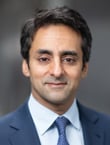 FAISAL ASHRAF Faisal Ashraf, chief executive officer and founder of Lotus Capital, had one single mission when starting the lending firm in 2016 and that was to intermediate capital on behalf of clients. Before launching the company, Faisal was no stranger to holding leadership roles. With 16 years in the industry under his belt, he has held the position of deputy head of real estate finance in Europe and large loan banking group in New York for Credit Suisse. And before founding his own firm, he was managing director and head of capital markets for Cantor Commercial Real Estate. While at Cantor, Faisal structured and closed over $35 billion in debt and equity related products. Today, Faisal is structuring loans between $50 and $300 million on projects ranging from hotel to office to multifamily across the US. Expanding Lotus Capital and its offerings is Faisal's top priority, and is why two years ago he launched a loan sale and distribution business aimed at lenders and investors who want to de-risk and leverage their positions in whole loans, A-notes and mezzanine debt. Notable transactions Faisal has arranged include a $100 million loan to build the first phase of SLS project in Hallandale Beach and a $107 million financing for Tahoe Beach Club via ACORE Capital.
FAISAL ASHRAF Faisal Ashraf, chief executive officer and founder of Lotus Capital, had one single mission when starting the lending firm in 2016 and that was to intermediate capital on behalf of clients. Before launching the company, Faisal was no stranger to holding leadership roles. With 16 years in the industry under his belt, he has held the position of deputy head of real estate finance in Europe and large loan banking group in New York for Credit Suisse. And before founding his own firm, he was managing director and head of capital markets for Cantor Commercial Real Estate. While at Cantor, Faisal structured and closed over $35 billion in debt and equity related products. Today, Faisal is structuring loans between $50 and $300 million on projects ranging from hotel to office to multifamily across the US. Expanding Lotus Capital and its offerings is Faisal's top priority, and is why two years ago he launched a loan sale and distribution business aimed at lenders and investors who want to de-risk and leverage their positions in whole loans, A-notes and mezzanine debt. Notable transactions Faisal has arranged include a $100 million loan to build the first phase of SLS project in Hallandale Beach and a $107 million financing for Tahoe Beach Club via ACORE Capital.
 BRIAN BARROW Brian Barrow became CEO of Paramount Specialty Finance when it was founded in October of 2015. Barrow teamed up with Joel Waxman to found the firm. Through his lead, Paramount has deployed a programmatic, institutional solution to net leased developers across the entire country, providing up to 100% loan to cost loans for build to suit, blend and extend and sale leaseback opportunities. The under $10 million net leased lending space has always been very fragmented with a variety of lenders and equity sources almost entirely on the local and regional level. With his vast experience in the commercial real estate space, he discovered that Paramount can serve as an industry leader by focusing primarily on loans under $10 million, with a majority in the $2 million to $6 million range. Although the company is not limited to that amount, the company has closed loans as large as $50 million, and can finance more for the right opportunities. Paramount has established itself as the nation's leading private lender in the net leased and build to suit development sector. Barrow has spent his entire career in commercial real estate investment and development. Prior to founding Paramount, he was a partner with a real estate development company focused on build to suit projects across the country working with corporate and franchise tenants. His experience includes sourcing, underwriting, structuring, closing and managing both relationships and development projects.
BRIAN BARROW Brian Barrow became CEO of Paramount Specialty Finance when it was founded in October of 2015. Barrow teamed up with Joel Waxman to found the firm. Through his lead, Paramount has deployed a programmatic, institutional solution to net leased developers across the entire country, providing up to 100% loan to cost loans for build to suit, blend and extend and sale leaseback opportunities. The under $10 million net leased lending space has always been very fragmented with a variety of lenders and equity sources almost entirely on the local and regional level. With his vast experience in the commercial real estate space, he discovered that Paramount can serve as an industry leader by focusing primarily on loans under $10 million, with a majority in the $2 million to $6 million range. Although the company is not limited to that amount, the company has closed loans as large as $50 million, and can finance more for the right opportunities. Paramount has established itself as the nation's leading private lender in the net leased and build to suit development sector. Barrow has spent his entire career in commercial real estate investment and development. Prior to founding Paramount, he was a partner with a real estate development company focused on build to suit projects across the country working with corporate and franchise tenants. His experience includes sourcing, underwriting, structuring, closing and managing both relationships and development projects.
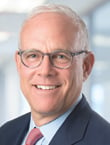 BRETT D. FORMAN Brett D. Forman, executive managing director at Trez Capital, has prioritized a streamlined lending process to transform the commercial lending landscape, mainly in his hometown of South Florida. Forman has zeroed in on using the advantages of working in the private sector when competing with stringent banks. As a private lender, Trez Capital is not subject to the same lending limits and regulations that traditional banks face. The firm does not underwrite based solely on a limited-defined credit "box", but more on the worthiness of a borrower and the "true" value of the real estate. Trez is backed by private institutional capital and manages $3 billion in discretionary capital. As such, it is often willing to loan 75 plus percent loan to cost, leaving a smaller portion needed for equity. In his current role, Forman is responsible for growing Trez Capital's business in the US, specifically in the Eastern region. As a partner in the company, he is also responsible for cultivating relationships with investors and reporting to them on a regular basis. In 2019, Forman originated the largest loan to date for his company, a $115-million mortgage for a project called Camperdown, a large-scale mixed-use project in Greenville, SC. The project features 174,280 square feet of office space, 20 condominiums, and 33,638 square feet of retail space. He has plans to add nearly a dozen originators, asset managers and analysts to both the Palm Beach, FL, and the Atlanta, GA, offices with goals of surpassing $1 billion in originations in his territory.
BRETT D. FORMAN Brett D. Forman, executive managing director at Trez Capital, has prioritized a streamlined lending process to transform the commercial lending landscape, mainly in his hometown of South Florida. Forman has zeroed in on using the advantages of working in the private sector when competing with stringent banks. As a private lender, Trez Capital is not subject to the same lending limits and regulations that traditional banks face. The firm does not underwrite based solely on a limited-defined credit "box", but more on the worthiness of a borrower and the "true" value of the real estate. Trez is backed by private institutional capital and manages $3 billion in discretionary capital. As such, it is often willing to loan 75 plus percent loan to cost, leaving a smaller portion needed for equity. In his current role, Forman is responsible for growing Trez Capital's business in the US, specifically in the Eastern region. As a partner in the company, he is also responsible for cultivating relationships with investors and reporting to them on a regular basis. In 2019, Forman originated the largest loan to date for his company, a $115-million mortgage for a project called Camperdown, a large-scale mixed-use project in Greenville, SC. The project features 174,280 square feet of office space, 20 condominiums, and 33,638 square feet of retail space. He has plans to add nearly a dozen originators, asset managers and analysts to both the Palm Beach, FL, and the Atlanta, GA, offices with goals of surpassing $1 billion in originations in his territory.
 CHAD T. HAGWOOD Hunt Real Estate Capital under the leadership of industry veteran Chad Hagwood, senior managing director and head of MHC Lending, Southeast regional manager, and lead of Hunt's Manufactured Housing Community production nationally, has emerged a leader in the manufactured housing community lending space. Hagwood is responsible for originating conventional Fannie Mae, Freddie Mac, and proprietary Balance Sheet loans, in addition to Manufactured Housing Community loan products. He joined the firm in 2018 and has shared the knowledge he has obtained over his 20-plus years in the space with Hunt's national network of loan producers. As a result, there has been a more than 400% increase in loan volume from 2017 to 2019, with Hunt finishing 2019 with $300 million in capital provided to MHC owners across the country. This rapid ascension in volume earned the firm a Top 3 designation by Fannie Mae for the agency's Manufactured Housing Communities loan program for the first time in 2019. After joining Hunt Real Estate Capital in mid-2018, he has gone on to close out the year as the firm's top producer and was named one of Birmingham's Executives of Influence in 2019.
CHAD T. HAGWOOD Hunt Real Estate Capital under the leadership of industry veteran Chad Hagwood, senior managing director and head of MHC Lending, Southeast regional manager, and lead of Hunt's Manufactured Housing Community production nationally, has emerged a leader in the manufactured housing community lending space. Hagwood is responsible for originating conventional Fannie Mae, Freddie Mac, and proprietary Balance Sheet loans, in addition to Manufactured Housing Community loan products. He joined the firm in 2018 and has shared the knowledge he has obtained over his 20-plus years in the space with Hunt's national network of loan producers. As a result, there has been a more than 400% increase in loan volume from 2017 to 2019, with Hunt finishing 2019 with $300 million in capital provided to MHC owners across the country. This rapid ascension in volume earned the firm a Top 3 designation by Fannie Mae for the agency's Manufactured Housing Communities loan program for the first time in 2019. After joining Hunt Real Estate Capital in mid-2018, he has gone on to close out the year as the firm's top producer and was named one of Birmingham's Executives of Influence in 2019.
 DANIEL HARTNETT Daniel Hartnett co-leads the Greysteel national debt & structured finance and JV equity practice groups, with a primary focus in the Central and Southwest US. He specializes in structured debt, mezzanine and joint venture equity placement for multifamily, hospitality, commercial, retail, office, industrial, manufactured housing, office and self-storage properties. Hartnett conducts financial analysis for acquisition, refinance, and other special situation workout loans and is responsible for sourcing and executing corporate and project-related debt solutions for middle market and institutional clients through numerous relationships with banks, life insurance companies and CMBS conduit lenders. While some in commercial real estate finance are reluctant for change, Hartnett values adaptability to prove market trends and new technology, while also understanding the ebbs and flows of capital markets. He is attuned to make sure the client experience and execution is thorough, utilizing Greysteel's proprietary capital tracking database to aid in the facilitation of an accretive solution for every client's transaction needs. He joined Greysteel's Dallas/Fort Worth office as a capital markets associate in early 2016 to assist in the growth of the debt and structured finance practice. In the three years, he has arranged $267 million in total finance volume, $126 million in the last 12 months, and has arranged the financing for two hotels and three multifamily loans totaling $35 million most recently. According to Hartnett, his most recent significant and interesting deal was a multifamily cash-out refinance. He was able to lower the interest rate by 150 basis points, structure full-term interest only and cash-out equity and close the loan within 35 days.
DANIEL HARTNETT Daniel Hartnett co-leads the Greysteel national debt & structured finance and JV equity practice groups, with a primary focus in the Central and Southwest US. He specializes in structured debt, mezzanine and joint venture equity placement for multifamily, hospitality, commercial, retail, office, industrial, manufactured housing, office and self-storage properties. Hartnett conducts financial analysis for acquisition, refinance, and other special situation workout loans and is responsible for sourcing and executing corporate and project-related debt solutions for middle market and institutional clients through numerous relationships with banks, life insurance companies and CMBS conduit lenders. While some in commercial real estate finance are reluctant for change, Hartnett values adaptability to prove market trends and new technology, while also understanding the ebbs and flows of capital markets. He is attuned to make sure the client experience and execution is thorough, utilizing Greysteel's proprietary capital tracking database to aid in the facilitation of an accretive solution for every client's transaction needs. He joined Greysteel's Dallas/Fort Worth office as a capital markets associate in early 2016 to assist in the growth of the debt and structured finance practice. In the three years, he has arranged $267 million in total finance volume, $126 million in the last 12 months, and has arranged the financing for two hotels and three multifamily loans totaling $35 million most recently. According to Hartnett, his most recent significant and interesting deal was a multifamily cash-out refinance. He was able to lower the interest rate by 150 basis points, structure full-term interest only and cash-out equity and close the loan within 35 days.
 TAMMY JONES Tammy Jones, CEO of Basis Investment Group, is a standout in the commercial real estate arena as one of the only African American women to found a real estate financing firm that has sustained out of the 2008 Financial Crisis. Under Jones' leadership and direction, the Basis team is currently 77% comprised of women and minorities, and actively promotes opportunities and education in real estate with underrepresented groups through the Basis Impact Group Foundation that she has founded. A successful business now in its 10th year, Basis under has closed more than $4 billion in debt and equity transactions throughout the country. Following an aggressive listening tour with industry leaders, Jones led Basis in closing its first fund in May 2019 totaling $410 million. Despite being a first-time manager, the fund oversubscribed its target by $10 million during a time of looming market volatility when many well-known managers fell short on targets. In 2020, Jones was appointed as the chair of the board of directors for the Real Estate Executive Council, a professional trade association formed to promote the interests of minority executives doing business in the commercial real estate industry. Jones is the first female chair of the association. To tackle the lack of diversity within the industry, Tammy BIG foundation, an organization that seeks to inspire the next generation of minorities and women in commercial real estate finance, offers various programming to underrepresented youth to bring awareness to the possibility of the field and establishing a career and wealth-building opportunities within the industry.
TAMMY JONES Tammy Jones, CEO of Basis Investment Group, is a standout in the commercial real estate arena as one of the only African American women to found a real estate financing firm that has sustained out of the 2008 Financial Crisis. Under Jones' leadership and direction, the Basis team is currently 77% comprised of women and minorities, and actively promotes opportunities and education in real estate with underrepresented groups through the Basis Impact Group Foundation that she has founded. A successful business now in its 10th year, Basis under has closed more than $4 billion in debt and equity transactions throughout the country. Following an aggressive listening tour with industry leaders, Jones led Basis in closing its first fund in May 2019 totaling $410 million. Despite being a first-time manager, the fund oversubscribed its target by $10 million during a time of looming market volatility when many well-known managers fell short on targets. In 2020, Jones was appointed as the chair of the board of directors for the Real Estate Executive Council, a professional trade association formed to promote the interests of minority executives doing business in the commercial real estate industry. Jones is the first female chair of the association. To tackle the lack of diversity within the industry, Tammy BIG foundation, an organization that seeks to inspire the next generation of minorities and women in commercial real estate finance, offers various programming to underrepresented youth to bring awareness to the possibility of the field and establishing a career and wealth-building opportunities within the industry.
 ROBERT LIKES Robert Likes leads the KeyBank Community Development Lending and Investment platform. In the past few years, Likes has doubled its affordable housing business from $1.3 billion in 2016 to $2.4 billion in 2019. As part of last year's growth, CDLI brought in 38 new clients. There are several affordable housing groups that KeyBank supports, which include moderate-income, low-income, very-low-income and extremely-low-income. KeyBank Real Estate Capital's Community Development and the CDLI team is helping to make capital more accessible to those high-demand housing types. Notably, Likes and his team executed on the strategy to move Key Bank's CDLI group to a national operation in all 50 states, one of the firm's largest strategic initiatives. To accomplish this feat, they've executed affordable housing projects within its retail footprint and are regularly developing broad, meaningful relationships with owners and developers of affordable housing nationwide. Key Bank has committed to a five-year goal of $8.8 billion in Community Development Lending & Investment. Within two years, CDLI has provided more than $5 billion in affordable housing and community development solutions, 33% year-over-year growth.
ROBERT LIKES Robert Likes leads the KeyBank Community Development Lending and Investment platform. In the past few years, Likes has doubled its affordable housing business from $1.3 billion in 2016 to $2.4 billion in 2019. As part of last year's growth, CDLI brought in 38 new clients. There are several affordable housing groups that KeyBank supports, which include moderate-income, low-income, very-low-income and extremely-low-income. KeyBank Real Estate Capital's Community Development and the CDLI team is helping to make capital more accessible to those high-demand housing types. Notably, Likes and his team executed on the strategy to move Key Bank's CDLI group to a national operation in all 50 states, one of the firm's largest strategic initiatives. To accomplish this feat, they've executed affordable housing projects within its retail footprint and are regularly developing broad, meaningful relationships with owners and developers of affordable housing nationwide. Key Bank has committed to a five-year goal of $8.8 billion in Community Development Lending & Investment. Within two years, CDLI has provided more than $5 billion in affordable housing and community development solutions, 33% year-over-year growth.
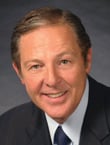 WILLIAM "BILLY" PROCIDA While much has changed in the commercial real estate industry since William "Billy" Procida started his career over forty years ago, his philosophy to focus on local deals that are a force for positive change in communities remains the same. Procida has completed billions of dollars of projects, and as a result his impact has gained him notoriety as a lender throughout the eastern region of the US, particularly within the New York metropolitan area and Philadelphia. After a 15-year career as an award winning, nationally-ranked developer and general contractor, Procida founded his company, Procida Funding & Advisors, formerly William Procida Inc. and Palisades Financial. His philosophy to do good is at the heart of the success of his commercial real estate finance and advisory company based in northern New Jersey. The company celebrates its 25th year in business, having completed $134 million in financing in 2019. Under his direction, the company utilizes its own capital and that of its strategic partners to offer loans from $1 million to $100 million, with a focus on deals in the $3 million to $50 million range. The company exclusively manages the 100 Mile Fund, an open-ended real estate investment trust providing bridge, construction, mezzanine and preferred equity financing for value add, distressed and opportunistic situations within 100 miles of New York City. Since 1995, Procida's different funds have invested over $3 billion. Under Procida's direction, the fund has achieved a net return to investors of 11.56% for 2019 and has a robust pipeline for 2020. Since the fund's inception in 2011, the fund has achieved a net annual distribution of 12.87%.
WILLIAM "BILLY" PROCIDA While much has changed in the commercial real estate industry since William "Billy" Procida started his career over forty years ago, his philosophy to focus on local deals that are a force for positive change in communities remains the same. Procida has completed billions of dollars of projects, and as a result his impact has gained him notoriety as a lender throughout the eastern region of the US, particularly within the New York metropolitan area and Philadelphia. After a 15-year career as an award winning, nationally-ranked developer and general contractor, Procida founded his company, Procida Funding & Advisors, formerly William Procida Inc. and Palisades Financial. His philosophy to do good is at the heart of the success of his commercial real estate finance and advisory company based in northern New Jersey. The company celebrates its 25th year in business, having completed $134 million in financing in 2019. Under his direction, the company utilizes its own capital and that of its strategic partners to offer loans from $1 million to $100 million, with a focus on deals in the $3 million to $50 million range. The company exclusively manages the 100 Mile Fund, an open-ended real estate investment trust providing bridge, construction, mezzanine and preferred equity financing for value add, distressed and opportunistic situations within 100 miles of New York City. Since 1995, Procida's different funds have invested over $3 billion. Under Procida's direction, the fund has achieved a net return to investors of 11.56% for 2019 and has a robust pipeline for 2020. Since the fund's inception in 2011, the fund has achieved a net annual distribution of 12.87%.
 JEFFREY B. PYATT Broadmark Realty Capital is different than the traditional mortgage real estate investment trusts. Founded 10 years ago by asset-lending professionals Jeffrey Pyatt and Joe Schocken, Broadmark is a hard money lender that offers short-term and first deed of trust loans secured by real estate for the acquisition, renovation, rehabilitation and development of residential or commercial properties. The company operates without any debt, doesn't deal with pooled mortgage loans—choosing to originate its loans based on its strict underwriting criteria—and is internally managed, which creates a strong alignment of interests with shareholders. Broadmark's differentiated operating structure and lending approach are based on the philosophy of prudent growth, which focuses on risk avoidance and capital preservation above all else. This approach is the reason why Broadmark has managed to experience minimal losses despite having originated over 1,000 loans with an aggregate face amount of approximately $2 billion since inception through June 2019. Moreover, it's the reason why approximately two-thirds of Broadmark's business comes from repeat borrowers. As CEO, Pyatt oversees the day-to-day operations and overall strategic direction of Broadmark and its lending activities. He is also a member of Broadmark's board of directors.
JEFFREY B. PYATT Broadmark Realty Capital is different than the traditional mortgage real estate investment trusts. Founded 10 years ago by asset-lending professionals Jeffrey Pyatt and Joe Schocken, Broadmark is a hard money lender that offers short-term and first deed of trust loans secured by real estate for the acquisition, renovation, rehabilitation and development of residential or commercial properties. The company operates without any debt, doesn't deal with pooled mortgage loans—choosing to originate its loans based on its strict underwriting criteria—and is internally managed, which creates a strong alignment of interests with shareholders. Broadmark's differentiated operating structure and lending approach are based on the philosophy of prudent growth, which focuses on risk avoidance and capital preservation above all else. This approach is the reason why Broadmark has managed to experience minimal losses despite having originated over 1,000 loans with an aggregate face amount of approximately $2 billion since inception through June 2019. Moreover, it's the reason why approximately two-thirds of Broadmark's business comes from repeat borrowers. As CEO, Pyatt oversees the day-to-day operations and overall strategic direction of Broadmark and its lending activities. He is also a member of Broadmark's board of directors.
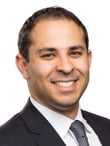 DAN SACKS Dan Sacks, Greystone managing director, is one of the firm's top ten 10 originators. Over the past three years, Sacks has grown his team of three people to more than 10 professionals dedicated to getting the best possible financing executed for each client. In 2019, he and his ever-growing team handled $2.1 billion in multifamily loan production. At any given time, he is personally running 10 transactions, and his entire team is working on 30 deals at various stages of the transaction pipeline. Sacks recognized early on that going beyond simply 'transacting deals' and instead, diving in to understand the nuances and details of the breadth of products available to sponsors and borrowers, and the unique characteristics of their particular properties or circumstances was his competitive advantage. He notes that his team's No. 1 priority is "to provide our clients with the best service, on every transaction." One of his major deal highlights include the North Street Portfolio, a $163.5-million recapitalization of a distressed four-property multifamily portfolio in Pennsylvania and Kentucky, featuring $125.2 million in Fannie Mae financing. Greystone structured a complex capital stack and new operating ownership to inject equity into the properties and return them to profitability.
DAN SACKS Dan Sacks, Greystone managing director, is one of the firm's top ten 10 originators. Over the past three years, Sacks has grown his team of three people to more than 10 professionals dedicated to getting the best possible financing executed for each client. In 2019, he and his ever-growing team handled $2.1 billion in multifamily loan production. At any given time, he is personally running 10 transactions, and his entire team is working on 30 deals at various stages of the transaction pipeline. Sacks recognized early on that going beyond simply 'transacting deals' and instead, diving in to understand the nuances and details of the breadth of products available to sponsors and borrowers, and the unique characteristics of their particular properties or circumstances was his competitive advantage. He notes that his team's No. 1 priority is "to provide our clients with the best service, on every transaction." One of his major deal highlights include the North Street Portfolio, a $163.5-million recapitalization of a distressed four-property multifamily portfolio in Pennsylvania and Kentucky, featuring $125.2 million in Fannie Mae financing. Greystone structured a complex capital stack and new operating ownership to inject equity into the properties and return them to profitability.
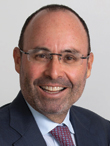 MICHAEL STEIN Born out of the financial crisis, Michael Stein and his two partners Gavin Beekman and Joe Ackerman both from Cidel Financial Group, founded Pensam in 2009. The firm has made preferred equity investments in over 18,000 apartment units across 25 states since then, providing solutions and products that span across the capital stack, including first mortgages, mezzanine debt, subordinate debt, unitranche loans and preferred equity to various stakeholders. The firm has established itself as one of the country's most active private real estate investors and capital providers focused on the multihousing sector. Stein, a commercial real estate executive who had started his career at CB Richard Ellis in Miami 1990 and later became a partner in Aztec Group, decided to launch a financial startup solely focused on providing short-term bridge loans to owners of distressed multifamily properties. Pensam's particular strength and focus has been and continues to be on high-leverage loans with up to 90% loan to value on pre-stabilized multifamily properties or apartment properties undergoing a major repositioning—the kind of product that most conventional lenders shy away from. In short, because of its unique and holistic approach, Pensam has been prominent in the resurgence and expansion of the United States multifamily sector by providing a much-needed source of aggressive, flexible capital to a geographically diverse group of sponsors whose properties were in transitional stages—either undergoing lease up, partially completed, or in the process of repositioning. Pensam has been both influential and instrumental in helping dozens of high-quality sponsors build their multifamily portfolios and create value for their investor base.
MICHAEL STEIN Born out of the financial crisis, Michael Stein and his two partners Gavin Beekman and Joe Ackerman both from Cidel Financial Group, founded Pensam in 2009. The firm has made preferred equity investments in over 18,000 apartment units across 25 states since then, providing solutions and products that span across the capital stack, including first mortgages, mezzanine debt, subordinate debt, unitranche loans and preferred equity to various stakeholders. The firm has established itself as one of the country's most active private real estate investors and capital providers focused on the multihousing sector. Stein, a commercial real estate executive who had started his career at CB Richard Ellis in Miami 1990 and later became a partner in Aztec Group, decided to launch a financial startup solely focused on providing short-term bridge loans to owners of distressed multifamily properties. Pensam's particular strength and focus has been and continues to be on high-leverage loans with up to 90% loan to value on pre-stabilized multifamily properties or apartment properties undergoing a major repositioning—the kind of product that most conventional lenders shy away from. In short, because of its unique and holistic approach, Pensam has been prominent in the resurgence and expansion of the United States multifamily sector by providing a much-needed source of aggressive, flexible capital to a geographically diverse group of sponsors whose properties were in transitional stages—either undergoing lease up, partially completed, or in the process of repositioning. Pensam has been both influential and instrumental in helping dozens of high-quality sponsors build their multifamily portfolios and create value for their investor base.
LENDER TEAMS
 Boyd Fellows
Boyd Fellows Chris Tokarski
Chris TokarskiACORE CAPITAL'S MANAGING PARTNERS Since its inception in May 2015, ACORE Capital has established itself as one of the nation's largest and most active commercial real estate finance companies originating $21.5 billion in loans. The firm's success is attributed in large part to the commitment of its founders and four managing partners Boyd Fellows, Stew Ward, Chris Tokarski and Warren de Haan. Together the team has helped ACORE capture additional market share and has developed a suite of debt products that cover every part of the capital stack as well as the needs of its borrowers. ACORE's track record of flexibility and adaptability has enabled it to maintain long-standing industry relationships, resulting in significant repeat business. In fact, as of December 2019, 57% of ACORE's business had been secured with repeat
 Stew Ward
Stew Ward Warren de Haan
Warren de HaanACORE borrowers. Moreover, as of that date, ACORE had $16.9 billion of assets under management. Within the past three years, ACORE has originated more than 210 loans totaling more than $16 billion. This activity has established the firm as one of the largest private transitional commercial real estate lenders in the nation. In addition to growing its team to more than 90 people while opening offices across the country, ACORE revealed the final closing of ACORE Credit Partners I in 2019, as its first discretionary commingled real estate debt fund. The fund raised a total of $556 million, with a focus on originating and managing transitional commercial real estate debt investments in the US. Additionally, in 2019 ACORE launched its 10-year fixed rate lending program, providing borrowers with another practical financial product.
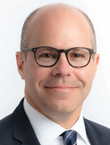 Charles Krawitz
Charles Krawitz Paul Letourneau
Paul Letourneau Peter Margolin
Peter MargolinALLIANT CREDIT UNION'S COMMERCIAL LENDING TEAM Punching above its weight to grow its portfolio and deliver value for its members, Alliant Credit Union has made its mark by challenging market perceptions about the role of credit unions in the commercial real estate industry. Because the firm opened its balance sheet to innovative loan structures and certain niche property types, Alliant has charted a new course for itself and other credit unions. A balance sheet lender offering flexible financing solutions to meet almost any borrower need, Alliant financed more than $371 million of commercial real estate in 2019, including a $61.9 million loan for a 1,540-unit, seven-property apartment portfolio in Tulsa, Oklahoma. Alliant's deep team of experienced loan officers use their expertise to identify niche property types that meet the credit union's underwriting parameters. By doing so, Alliant has become a prominent force in lending for manufactured housing communities, parking operations and self-storage facilities, among other specialties.
 Tim Madigan
Tim Madigan Yonah Sturmwind
Yonah SturmwindWith a goal to redefine the credit union's role in the capital stack for industry borrowers and investors, Alliant's commercial lending team works with experienced brokers to finance transactions typically ranging from $5 million to upwards of $35 million. Alliant's commercial lending portfolio has more than tripled in size. This growth has been strategic in nature with the resulting portfolio curated to minimize an assortment of risks including geographic, asset and borrower concentrations. Alliant's commercial portfolio contains 159 loans spread out across 33 states. Overall, the portfolio has a conservative loan to value of 58.5% and a combined debt service coverage of 1.79 multiple.
 Jeremy Burton
Jeremy Burton John Zubak
John ZubakCALMWATER CAPITAL'S ORIGINATIONS TEAM As a direct commercial real estate lender investing late in an economic cycle, Calmwater Capital plots carefully and strategically to deploy capital. With a typical loan size of $7 million to $75 million and a duration of two to three years, the firm focuses on investments in short-term private debt—which has become a globally recognized institutional asset class. Calmwater Capital's origination team identifies and capitalizes on unique opportunities by combining an institutional process with the flexibility of direct lending. This approach gives them the ability to reap the benefits of market inefficiencies. An added focus on downside protection and outstanding returns create a favorable opportunity for the firm's investors across all market cycles. By adopting an agnostic, non-thematic approach, the originations team focuses on highly-structured projects that can be executed seamlessly in
 Larry Grantham
Larry Grantham Mike Giannone
Mike Giannoneorder to provide certainty to prospective borrowers. In 2017, Calmwater Capital became a registered investment advisor and closed on a $636 million co-mingled fund. This is the first co-mingled fund and the largest raise by the firm to date, and includes commitments from state and international pension funds, top university endowments and family offices. The following year, the originations team took the firm to the East Coast, with the establishment of a New York City area office, which generated more than $216 million in transactions during its first two years. In addition, the originations team has been successful in providing creative student housing solutions for colleges across the nation. This has had a tremendous impact on the ability of institutions of higher learning to better serve, and educate their students.
 Alex Ovalle
Alex Ovalle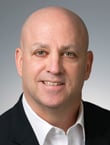 Bruce Davidson
Bruce DavidsonMOSAIC REAL ESTATE INVESTORS TEAM Mosaic Real Estate Investors, which was founded five years ago, has built a reputation for creativity, integrity and responsiveness. Understanding that no two deals are the same, Mosaic's team, led by Bruce Davidson and Alex Ovalle, use their experience, savvy and creativity to uncover investment opportunities that make sense for all parties involved. Throughout the last five years, Mosaic has surpassed $2.4 billion of originations while establishing itself as a leader in the debt fund space. Mosaic aligns investor and manager interests through its unique fund structure. The company's 0/25 fee structure means the firm does not collect a management fee based upon AUM and is entirely driven by performance. Davidson and Ovalle started Mosaic in 2020 with a $68.75 million loan for the construction of a new housing development for UC Merced students called "Merced Station. As a debt fund with inherently limited upside potential, Mosaic is highly focused on preserving principal value. Mosaic seeks to originate and structure investments that minimize the vulnerability to economic downturns by carrying out in-depth initial due diligence, structuring strong protective covenants, performing hands-on asset management, and working with proven, experienced sponsors. In 2018, National Real Estate Investors named Mosaic to its 2018 Top Lenders List. Both Davidson and Ovalle are actively involved with charitable organizations within their communities. Davidson is a strong supporter of Make a Wish Foundation-New Jersey and he additionally works with the New Jersey Special Olympics and the American Cancer Society. He is also a past member of the ULI and Mixed-Use Development Council. Ovalle has made it a priority to be active in philanthropic efforts within his community, working tirelessly to help support efforts to solve issues within the community.
LENDER ORGANIZATIONS
 Ivan Kaufman
Ivan KaufmanARBOR REALTY TRUST INC. Multifamily lender Arbor Realty Trust didn't start out with a servicing portfolio of over $20 billion when it was founded in 1983. The publicly-held real estate investment trust based in Uniondale, NY began as a single family lender when chairman, president and CEO Ivan Kaufman launched the firm when it was then known as Arbor National Holdings. In its 37 years in the industry, Arbor paved the way for other lenders to make liquidity available to the workforce and affordable multifamily space. The firm prides itself as a business focused on helping people and families secure housing, and is one of the few mortgage finance companies licensed in small loan lending by both government-sponsored entities Fannie Mae and Freddie Mac agencies. In 2014, Freddie Mac asked Arbor as one of only three lenders to pilot the Freddie Mac Small Balance Loan program. Soon after, Arbor became the first Freddie Mac SBL Lender to cross the $2 billion threshold and was a top 3 Freddie Mac SBL Lender in 2019. For the fiscal year of 2019, Arbor achieved record loan originations of $7.6 billion and saw structured portfolio growth of 30 percent from record loan originations of $2.8 billion. Arbor also achieved significant return to shareholders of 54 percent for 2019. It raised its common dividend three times in 2019 to a forward annual rate of $1.20 per share, up from $1.08 per share a year ago. Not only has Arbor set an example for other lending firms because of its financial achievements, but also with its distinctive culture. Cultivating and maintaining a work environment that encourages the best performance from its employees resulted in Arbor winning the title of "Top Workplace in Long Island" in the newspaper Newsday in 2019.
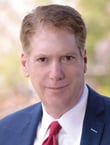 Jay Rollins
Jay Rollins Maren Steinberg
Maren SteinbergJCR CAPITAL JCR Capital is an institutional investor committed to middle-market investments and transactions between $10 million and $50 million. The firm, which provides joint venture equity, preferred equity, bridge loan and permanent financing for value-add, opportunistic and distressed transactions and special situations, invests on behalf of insurance companies, public pension funds, endowments, foundations and family offices. Co-founders Jay Rollins and Maren Steinberg established JCR Capital with its strategy focused on playing in a pond that had the least amount of capital in it, giving the firm a competitive advantage with limited competition. Also, its strategy is rooted in the idea that a generational transfer would occur in the middle market because owners of those assets tended to be individuals and partnerships who were often aging Baby Boomers, rather than institutions. This notion has affirmed the organization's confidence in navigating the industry for the past 14 years. Since 2017, JCR Capital's total assets under management have expanded 71% to $1.2 billion to date. In those three years, the firm has expanded its capital offerings substantially to better serve its partners and cater to a broader investor set. JCR Capital now offers eight funds and separately managed accounts, up from two capital products in 2017. JCR's current investment preferences are workforce housing, specifically class B and C multifamily housing, industrial, grocery-anchored retail in lower demographic areas, flex office and storage. The firm is committed to working with Baby Boomer's next of kin to service properties that often go back into the market for refinancing, recapitalization or a sale.
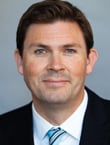 Evan Gentry
Evan Gentry Gary Bechtel
Gary BechtelMONEY360 While some traditional lenders have exited or jammed up operations in response to new, restrictive regulations in the market, Money360 is a firm geared toward working with lenders to help them overcome financing challenges and maintain their properties and standing in the national ecosystem. Money360 is a direct lender in the commercial real estate market specializing in small- to mid-balance loans ranging from $3 to $30 million. The firm's business model focuses on working with borrowers and brokers to create personalized, unique lending solutions that meet the needs of each individual. Money360 focuses on sourcing, underwriting, closing and servicing the mid-balance range of the market leveraging technology to increase the transparency and speed of the lending process. Money360's bench of seasoned commercial real estate professionals ensures a more customized, integrated and seamless experience for borrowers. CEO Evan Gentry and President Gary Bechtel and his team have sought to disrupt the commercial real estate lending industry by offering a new source of non-bank capital to borrowers seeking, efficient, flexible and competitive loans. The leaders have also carved out a niche for the business by working with the underserved market of borrowers who are looking for short term bridge loans on properties in transition. Over the course of the past three years, Money360 has grown exponentially with Gentry and Bechtel at the helm of the organization. This growth has been realized both in loan volume as well as growth of the talent pool within the organization. Notable highlights include surpassing $1.8 billion in commercial real estate loans closed since inception, the launch of a community development fund to provide support to underserviced communities throughout the nation, and the launch of their innovative technology platform – My360. The platform is a tool that the firm has introduced in the commercial real estate lending process, offering the ability to track the status of their loan as it progresses, securely upload critical documents and view lender commentary on items received and items needed providing a more reliable process that minimizes the chances for mistakes.
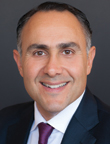 Paul Rahimian
Paul RahimianPARKVIEW FINANCIAL Parkview Financial, a lender that currently manages a debt fund which provides construction financing up to ground-up real estate development projects on a national basis, has stepped up to the plate amid increased demand from developers to fund projects that may not get approved for funding from banks otherwise. CEO Paul Rahimian leads Parkview. He founded the firm in early 2010 and has since originated hundreds of commercial and residential loans, always plying his trademark hands-on management style. Distinguished from its competitors by dedicated, in-house finance and accounting professionals, Parkview is widely recognized as a pioneer in the industry, among the first to offer complete integration of loan origination and servicing. As a private lender of construction financing for all property sectors, if Parkview believes in the underlying asset and is comfortable with the borrower, it will proceed even with potential changes in the market. In 2019, Parkview completed more than $500 million in loans to developers—an increase of $165 million over 2018. Rahimian also led the geographic expansion of the firm's lending reach from the West to the entire United States with lending in CA, OR, CO, ID, TX, NJ and FL. In all, the firm provided construction loans on 22 projects in 2019 and plans to significantly increase that number in 2020. In addition to its continued growth and expansion throughout the nation as noted above, Parkview has grown year over year over the past three years. As the economic cycle continues, there has been an overlying uncertainty in the construction market. Resulting from this, now more than ever before banks are being more cautious about projects. They don't want to take back assets like they did 10 years ago. As a private lender, Parkview looks forward to the future with confidence.
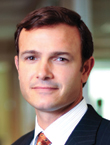 Jason Hull
Jason Hull Kevin McKenzie
Kevin McKenzie Mike Wilhelms
Mike WilhelmsSABAL CAPITAL PARTNERS LLP Sabal Capital Partners emerged a decade ago when its founder Pat Jackson launched the commercial real estate finance and investment firm in the midst of the Great Recession, seeing incredible opportunity during a time when the majority of industry participants were discouraged from the market. Right out of the gate, Sabal gained quick notoriety with its principal investments business, which rapidly established the company as legitimate. The vision of the company from the start was focused heavily on lending. Jackson and his senior team
 Pat Jackson
Pat Jackson Robert Restrick
Robert Restrickknew, even in 2009, when market dynamics did not yet support it, that they'd ultimately lead Sabal into finance with the intent of building not just a lending arm, but a robust lending business that would ultimately dominate its sector. The company's loans typically range from $2-$30 million. Because these are small transactions, the business requires deep efficiency, speed-to-close and large pipeline volume to ensure survival, profitability and success. The firm's debt offerings provide a robust set of solutions to brokers and borrowers and represent both government sponsored entities Freddie Mac and Fannie Mae affiliated programs for the finance of multifamily assets in the workforce and affordable categories, as well as conduit solutions for the finance of core real estate in all major commercial asset classes, including office, industrial, multifamily, self-storage and retail. All programs are offered nationwide with the benefit of a close in as little as 45 days. In 2017, Sabal Investment Advisors announced the close of its first fund, a private capital vehicle dubbed the SIA Debt Opportunities Fund, exceeding its initial target of $150 million with total commitments of $200 million. Sabal is currently working on closing its second fund. The funds are fundamental components to Sabal's integrated lending, servicing and investment model, which provides proven benefits to brokers, borrowers and investors.
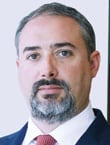 Brendan Miller
Brendan Miller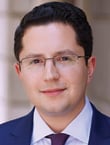 Felix Gutnikov
Felix Gutnikov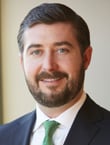 Kevin Miller
Kevin MillerTHOROFARE CAPITAL INC. Thorofare Capital Inc., an alternative investment manager specializing in senior mortgage debt for opportunistic acquisitions and middle-market recapitalizations nationwide, is firm in its commitment to responsible and sustainable growth with a business plan and team set-up to withstand downturns as well as bull markets due to its youth and minimal portfolio debt. The Los Angeles-based firm, founded in 2010, focuses on financing transactions with a value of $5 million to $100 million, targeting value-add and opportunistic acquisitions, recapitalizations and distressed debt secured by transitional properties. The firm has continued to increase its national footprint in tandem with borrowers that rely on the firm for their capital markets needs and look to expand in other asset classes, such as data centers and senior housing, and grow in secondary markets as well. Thorofare reached the milestone of exceeding $2.2 billion of total originated loans across its multi-strategy platform throughout 30 states, which includes its private fund series and joint venture with Doubleline Capital. The firm has established a national presence, having closed 254 transactions across 30 states. One recent accomplishment is the firm opening its New York City office in SoHo. Thorofare has thoughtfully crafted a reputation as an industry leader and pioneer in the private debt industry by demonstrating integrity, hard work and discipline when it comes to how the company approaches every task it undertakes. The firm's principals and employees hold themselves to the highest standards of integrity in all dealings whether it is with borrowers, investors or competitors because it says "we are all aware that our reputation is our single most important asset."
© Touchpoint Markets, All Rights Reserved. Request academic re-use from www.copyright.com. All other uses, submit a request to [email protected]. For more inforrmation visit Asset & Logo Licensing.







